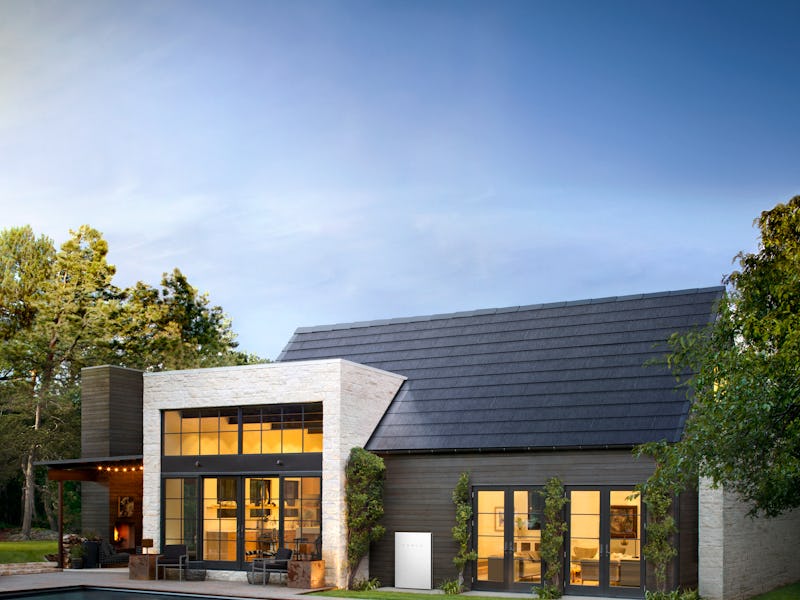Tesla Solar Roof: a key supplier has parted ways with the company
The two firms are parting ways in the solar business.

Tesla and Panasonic are parting ways in solar production, the latter company announced Wednesday. The announcement, which does not concern its arrangement to produce batteries together, comes amid reports of clashes in the relationship.
Panasonic, which has been producing solar cells at Tesla's Giga New York plant in Buffalo, will halt solar manufacturing operations by May of this year and leave the facility completely by September. Shinichiro Nakajima, director of Panasonic’s Energy System Strategic Business, issued a statement concerning the news:
"We are proud of what Panasonic has accomplished as a pioneer in the solar space and the significant role Panasonic employees in Buffalo have played in that success. The decision to transition away from U.S. solar manufacturing in Buffalo aligns with our global solar strategy, our efforts to optimize development and production, and supports Tesla’s long-term plans to continue and expand its operations."
It marks the end of a rather troubled arrangement between the two firms, as they struggled to produce products like the Tesla Solar Roof. These solar energy roof tiles, announced in October 2016, attracted attention through their design that makes them look like standard roof tiles. They first started reaching consumers in the spring of 2018, but in rather limited numbers. Reuters claimed in May 2018 that just 12 roofs were live and on the grid.
While Tesla claimed installs were slow due to a lack of batteries, it may not have been Tesla's only issue. CEO Elon Musk stated during a March 2019 event that it would be the year of the solar roof. The company had struggled in 2018 to ramp up production on its Model 3 sedan, its cheapest-ever electric car, while also supplying cells for the Powerwall that stores solar energy for 24-hour usage.
But Nikkei reported Wednesday that Panasonic struggled to meet Tesla's goals for the design while also meeting efficiency and cost targets. Tesla's third-generation tiles announced in October 2019 use China-made cells instead. Panasonic is expected to sell the other cells to clients like Japanese house builders.
Panasonic was keen, however, to stress that the announcement would not change its relationship with Tesla at Giga Nevada, where the pair produce batteries:
This decision will have no impact on Panasonic and Tesla’s strong partnership in Nevada. The two companies will continue their industry-leading electric vehicle battery work taking place at Tesla’s Gigafactory outside of Reno, NV.
The Tesla Model 3.
But that relationship, which started in 2010 with the Model S, has also appeared strained in recent months. An October 2019 report from the Wall Street Journal detailed culture clashes between a Panasonic made up of autonomous units and a Tesla where the CEO takes a large "nano-manager" role. The Japanese firm was concerned by Musk's weed smoking in September 2018, as well as his ambitious goals that would send Panasonic racing only to find Tesla itself behind schedule.
Perhaps the main reason why the relationship has seemed strained in recent months is the fact that Tesla has expressed greater interest in producing its own batteries. The company's battery researchers published a paper in September 2019 showing a pathway to producing a battery that could last for one million miles. The company filed a patent for a new battery cell that month. During the June 2019 shareholder meeting, Musk strongly hinted at plans to build its own batteries, leverage its acquisition of Maxwell Technologies, and even to enter the mining business.
Tesla is expected to host an event in April, where it may detail its battery plans further. As the company enters a new phase of supplying products to a broader market than ever, its agreement with Panasonic on solar may just be the first casualty in a broader reorganization.